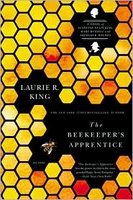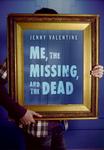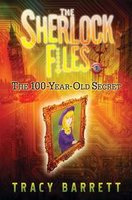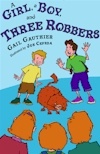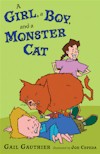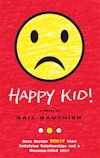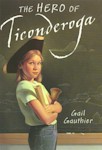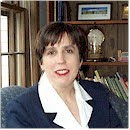A Possible Crossover Book
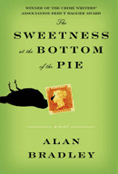
You know, lots of times I'll hear some book has won an award. I go ahead and read it and am left thinking, Gee, was nothing else published that year? That's not the case with the truly terrific The Sweetness at the Bottom of the Pie by Alan Bradley, which won the Crime Writers' Association Debut Dagger Award in 2007. Anything that could have beaten it would have had to be incredible.
Imagine a noncriminal Artemis Fowl in a book with an intellectually vigorous style similar to that of Octavian Nothing that is set in an English village that you might find in one of Dame Agatha's 1950's era novels. And then imagine that that the book you're talking about is very well-written on top of all that.
You're beginning to get the picture.
The Sweetness at the Bottome of the Pie is an adult mystery novel with an eleven-year-old main character, Flavia de Luce. She is one serious piece of work, the youngest child of what seems to be a depressed, country gentleman/stamp collector and his late, lamented wife who disappeared in the mountains years before. She has two older sisters, Ophelia, who plays the piano (classical music, of course) and Daphne who reads Dickens, with whom she is at constant war. They all live in a house the family has inhabited for generations, and Flavia has taken over an ancestor's personal laboratory. She is seriously into chemistry. She is extremely witty in a dark, brittle sort of way. And, yet, she is also innocent.
A body turns up in the cucumber patch. You can take it from there.
Setting this book in 1950 was a stroke of genius. Flavia is a bit over-the-top. Oh, hell, she's a lot of over-the-top, which is what makes her so marvelous. But no one could begin to believe she could exist in the twenty-first century. Her extensive knowledge of...all kinds of things...could only be acquired in a world without TV, malls, dance lessons, sports, and, it would seem, traditional schooling. (School is never mentioned.) And, for me, a big stumbling block with child mysteries is the fact that kids can't get around places on their own. But Flavia's always jumping on her old bike and pedaling off all over the place. It's believable in a pre-suburban world. I have ridden my bike to the library and even a church tag sale, but it's a huge undertaking, taking a big chunk out of my day. Traffic being what it is, I'm taking my life in my hands every time I do it. But in Flavia's world, it works.
The Sweetness at the Bottom of the Pie is the beginning of series. While I'd be delighted to spend more time with Flavia, I've often been disappointed with follow-up mysteries. She may be able to pull this off, though.
This series could definitely have crossover potential for sophisticated teen readers who enjoy literary humor.
Labels: Adult books, mysteries, Reader response

